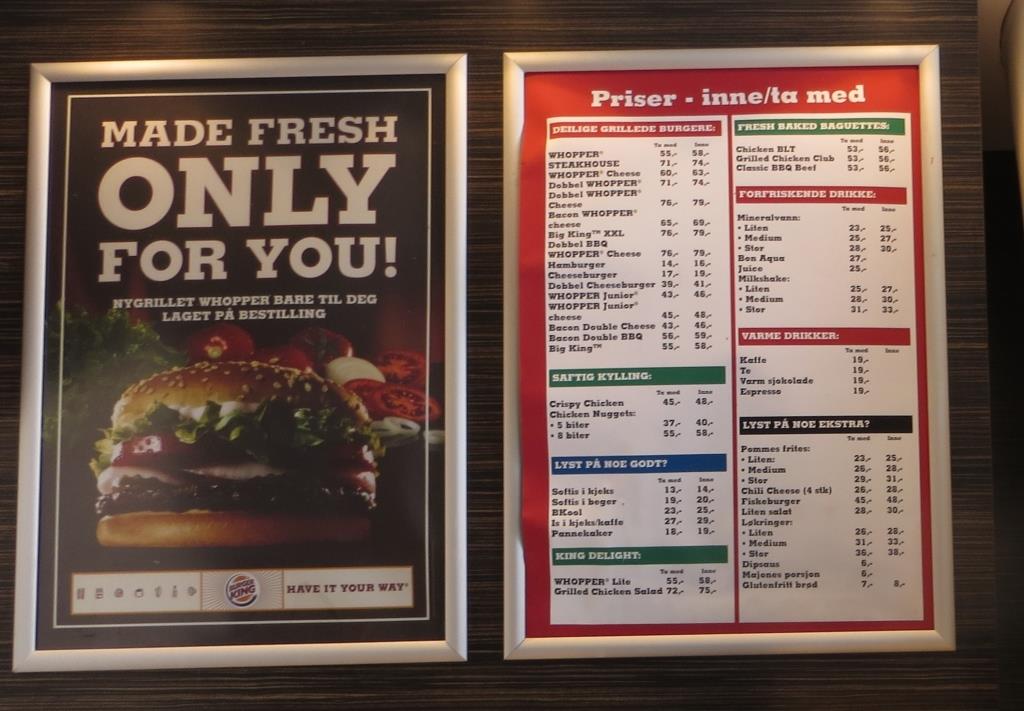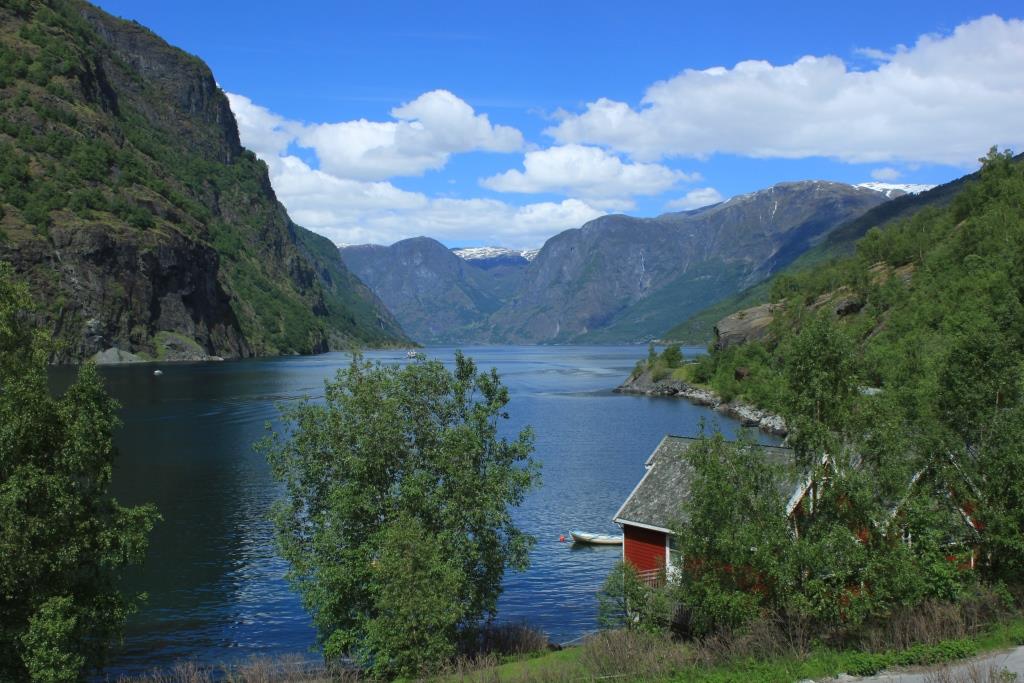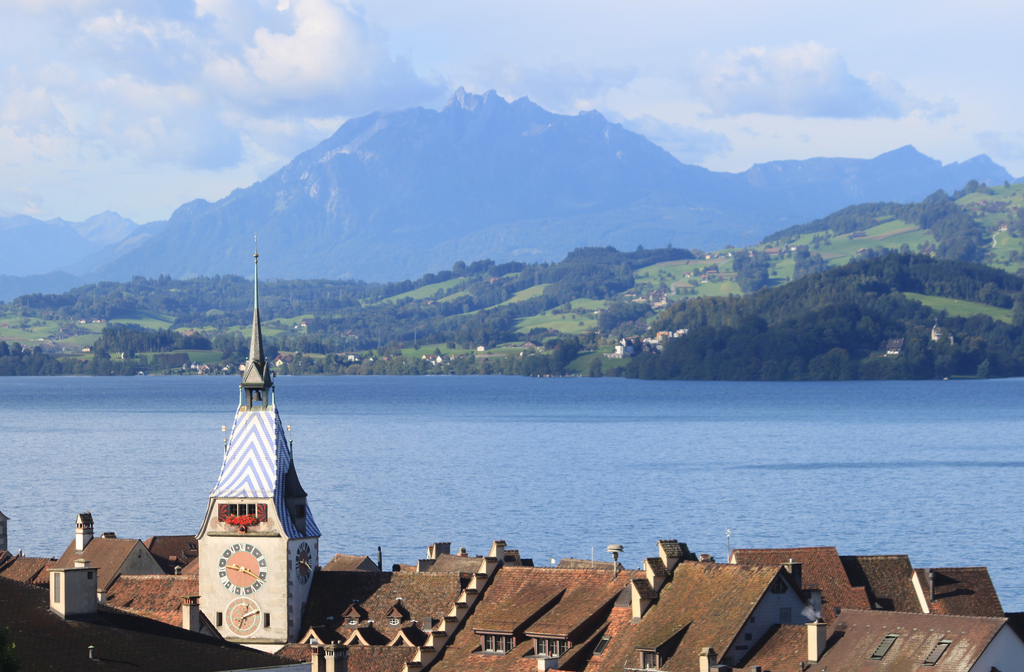On a recent visit to Norway, two friends from the University of Oslo on my first evening in Oslo took me out for a beer to talk about my visit–as in one beer each. The tab for the three beers: $57. Needless to say, I headed for a store the next day to check out retail prices. I noticed that they mostly sell beer individually, not per six-pack. It is because buying a six-pack would bankrupt you. The cheapest beer I could find, a mass-market Pilsner, was about $5 for one half-liter can–just over 16 ounces. Beer is very expensive because it is heavily taxed, as are all alcoholic beverages, as part of a strategy to curb alcoholism. My Norwegian friends assured me that the plan is not working.
But the bread at the store was expensive as well. As were restaurant food, train rides, hotel rooms, and books. And the list goes on. Most surprisingly, gasoline is expensive, too. Norway is the only oil-producing country with high gas prices. In fact, Norway has the highest gas prices in the world. Yet, the government through heavy taxation seeks to convince Norwegians to keep their cars at home and use public transportation instead. And it also subsidizes alternatives to fossil fuels, like this recharge station for electric_cars in central Oslo.
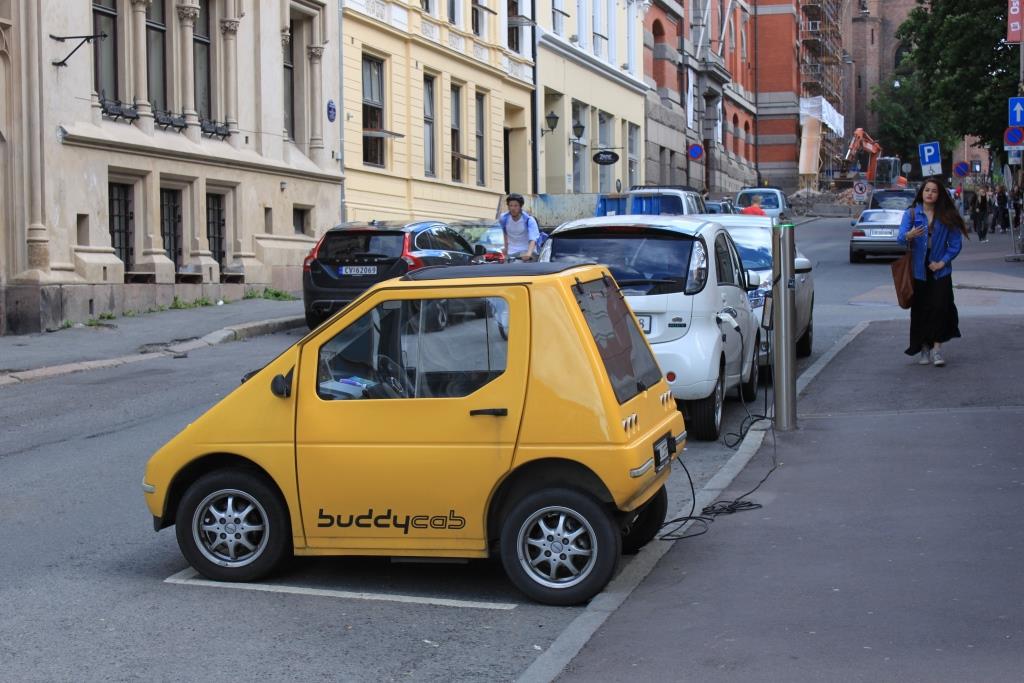
Battery recharge station for electric cars in central Oslo–in an oil-rich country. Nice parking job.
One interesting tool to compare price levels across countries is the Big Mac index which was developed by The Economist in 1986. Not surprisingly, the most expensive hamburgers in the world are sold in Norway where in July 2013 they cost 64.7% more than in the US. We might arrive at the conclusion that the Norwegian krone is overvalued. But if we use the index adjusted for GDP per person, the hamburger is only overvalued by 13.6%. So the exchange rate is a factor, but perhaps not the major one.
While the price of a hamburger is 64.7% higher, the GDP per person is a little more than double than that in the US. As the per-capita economic output is twice that of the United States, I assumed that some of this would trickle down in terms of personal income. So I asked the colleague who paid for the $57 beer tab why things are so expensive in his country. His response was, if you have a Norwegian paycheck this is not a problem. Not only are the wage levels very high, but disparities in income are much smaller than in the US. In other words, the person who sells you a hamburger or a beer in Oslo actually earns a living wage. High wages are prevalent and render the service industry expensive. But high wages are also common in education and other areas of the public sector–not to speak of the energy sector.
It is no secret that the North Sea oil brought a lot of wealth into the country over the past 30 years. What is interesting is how this wealth has trickled down. It has lowered the unemployment rate to an enviable 3.4%–one of the lowest in the world. (There are downsides to this which I will explain in a future post.) At the same time, it has supported a notion of a livable wage that is deeply anchored in Norwegian society. This stands in stark contrast to the United States where the working poor not just include workers in the service industry but increasingly also school teachers and other workers in the public sector.
But in this small Scandinavian country that sees itself as a social laboratory, making sure that this new-found oil wealth benefits all Norwegians is a national priority. Norway is a consensus-driven, relatively egalitarian society with a high level of social cohesion. According to the OECD, wage inequality is low, and a very progressive system of taxation further helps to reduce income inequality. And there even appears to be a consensus that the few that fall between the cracks deserve support–which is not the sole responsibility of the government. I observed a young woman, perhaps 18, walk out of a 7-Eleven convenience store in central Oslo and hand a sandwich to a street person.
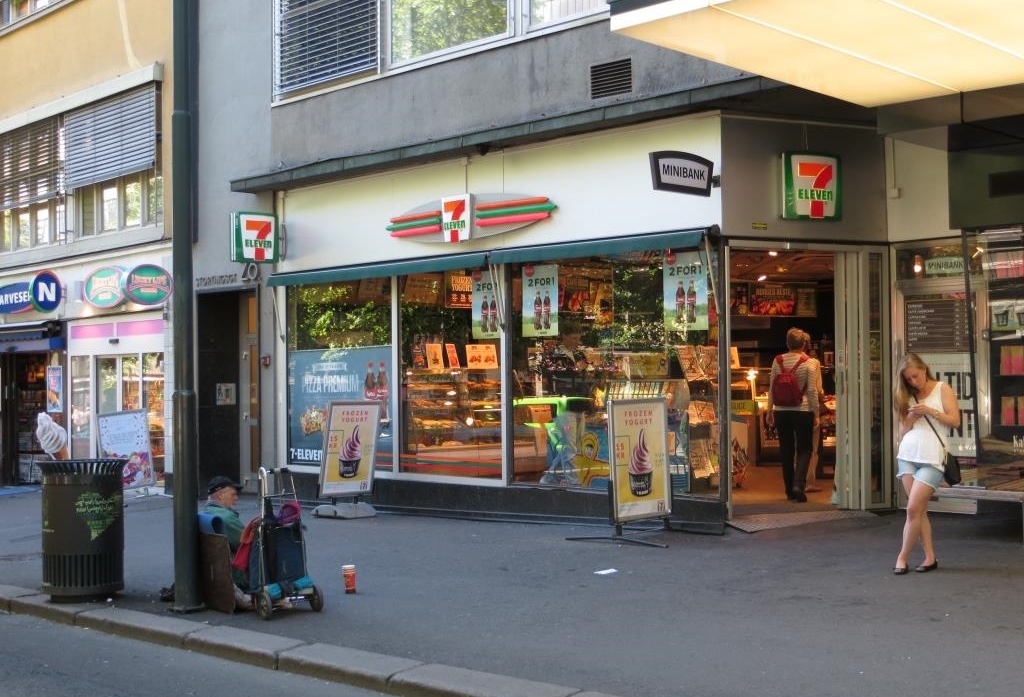
Homeless person in front of 7-Eleven in central Oslo, shortly after a young woman gave him a sandwich.
So if you will visit Norway as a tourist any time soon, you will surely complain about the exorbitant prices. But keep in mind that the money you pay in restaurants, hotels, and other parts of the tourist infrastructure will allow real people to have a real middle-class life. And Norway is a stunningly beautiful country, well worth a visit.
